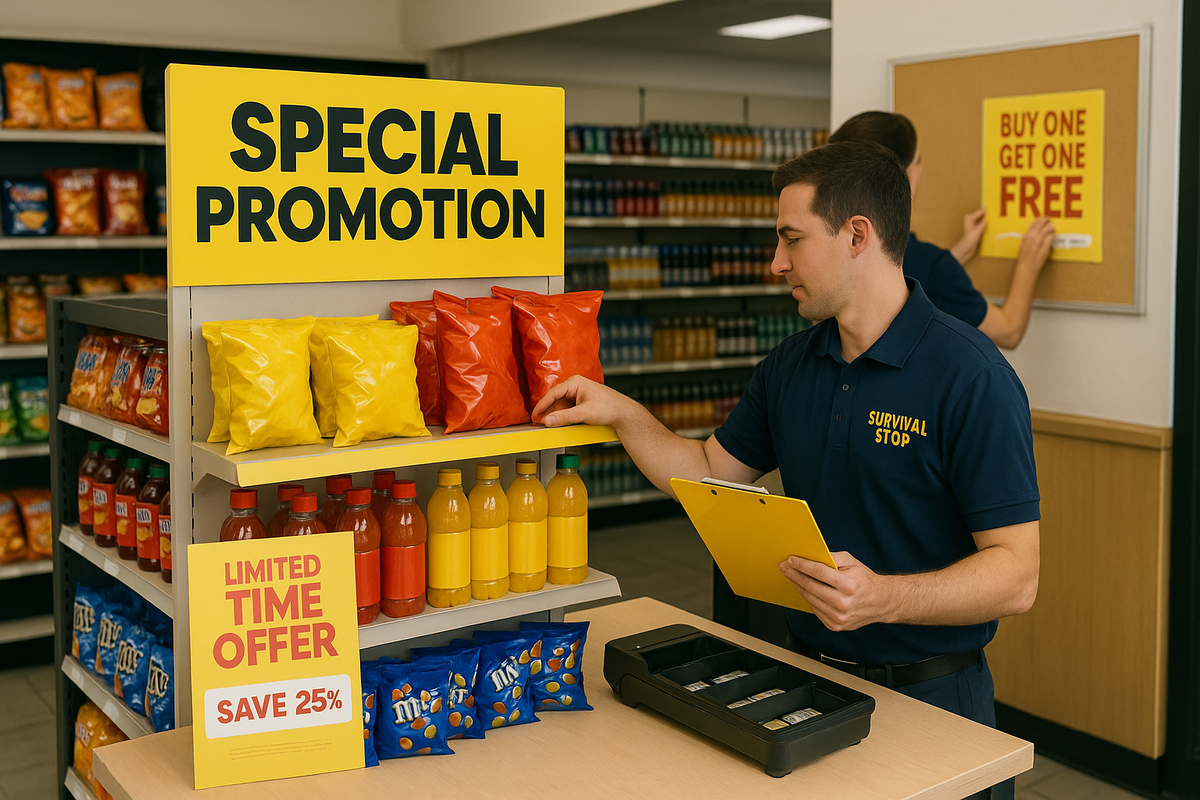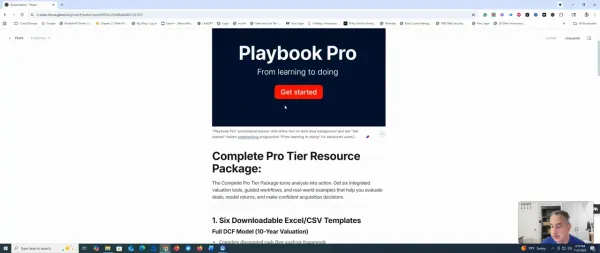How to Set Up a Store Promotion in a Convenience Store
Assistant managers approach promotions with structure, not scrambling. Define clear goals, prepare signage and staff, track daily progress through POS reports, adjust tactics as needed, and document lessons. Stores with pre-shift promo huddles see 25% higher redemption rates.

Launching a store promotion is more than putting up a sign and hoping customers notice. Capable assistant managers know promotions are opportunities to boost sales, attract new customers, and show district managers they can run a professional operation. The stores that separate themselves from the average are the ones that approach promotions with structure instead of scrambling.
When you set up a promotion confidently, you not only increase store revenue but also build trust with your team. Promotions become a chance to demonstrate leadership, not just another task handed down from corporate.
Step One: Define the Goal
Ask yourself: What is this promotion trying to achieve? Are you trying to clear seasonal stock, boost loyalty card signups, or drive add-on purchases like coffee with pastries? Setting a clear goal gives you control over execution and ensures your team knows why it matters.
Step Two: Prepare Your Store and Staff
Customers won’t act on promotions they don’t see or understand. That means:
- Place signage where it’s impossible to miss
- Stock displays fully so shelves don’t look empty halfway through the day
- Brief your staff before every shift so they can confidently talk about the offer
Stores that give a short pre-shift promo huddle see up to 25 percent higher redemption rates because employees feel prepared to promote, not pressured.
Step Three: Track Progress
A promotion without monitoring is just guesswork. Pull daily POS reports to compare sales of the promoted item before, during, and after. Even simple tracking shows you whether your efforts are paying off. Retail studies show promotions monitored daily outperform untracked ones by 20 percent.
Step Four: Adjust and Improve
If the promotion is underperforming, tweak it. Maybe the signage needs to move closer to the register, or your team needs a reminder script. Strong leaders don’t just run promotions—they refine them.
Step Five: Capture Lessons for Next Time
After the promotion ends, document results and key takeaways. Successful managers keep a simple promo log to avoid repeating mistakes and to replicate strategies that worked. This habit builds confidence and shows upper management that you lead with professionalism.
Takeaway
Every assistant manager knows the stress of last-minute promotions that feel chaotic. By setting goals, preparing your store and staff, tracking results, and learning from each run, you transform promotions into opportunities. You gain control, your team feels supported, and your store becomes known for delivering results—not excuses.





